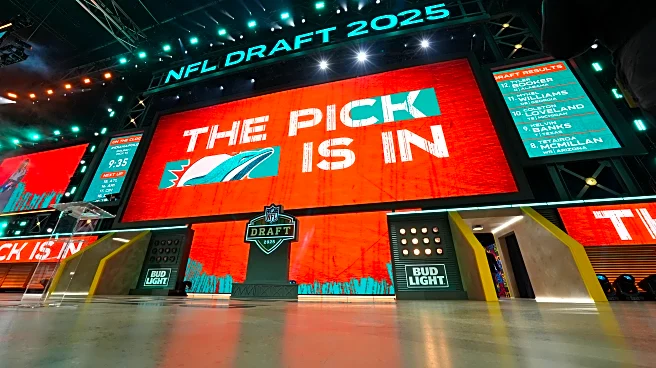What's Happening?
A recent study conducted by the French carbon-accounting firm Greenly has highlighted the significant environmental impact of physical video games compared to their digital counterparts. The study found that physical copies of video games are 100 times
more carbon-intensive than digital downloads. This is primarily due to the manufacturing and transportation processes involved in producing physical game discs, which contribute to higher carbon dioxide emissions. For instance, manufacturing 1 million physical game discs could result in 312 tons of carbon dioxide emissions, whereas downloading 1 million digital copies of the same game would produce only three tons of emissions. The study also noted the environmental impact of cloud-based gaming, which requires continuous energy consumption for data servers.
Why It's Important?
The findings of this study are crucial for the gaming industry and environmentally conscious consumers. As the industry continues to grow, understanding the environmental impact of different gaming formats can guide both manufacturers and consumers towards more sustainable practices. The study suggests that handheld gaming systems, such as the Nintendo Switch, produce significantly fewer emissions compared to traditional consoles. This information could influence consumer choices and encourage gaming companies to adopt more eco-friendly practices, such as using recycled materials and implementing energy-saving modes. The shift towards digital gaming could also reduce landfill waste associated with physical game packaging.
What's Next?
Gaming companies may need to reassess their production and distribution strategies to minimize environmental impact. This could involve increasing the availability of digital downloads and investing in energy-efficient technologies for cloud gaming. Companies like Microsoft are already taking steps in this direction by using recycled materials and developing energy-saving power modes. As awareness of the environmental impact of gaming grows, consumers may demand more sustainable options, potentially leading to industry-wide changes in manufacturing and distribution practices.
Beyond the Headlines
The study raises broader questions about the sustainability of the gaming industry and the role of consumer behavior in driving environmental change. As digital gaming becomes more prevalent, there may be a cultural shift towards valuing digital ownership over physical collections. This could have long-term implications for how games are marketed and sold, as well as how consumers perceive value in digital versus physical products.

















